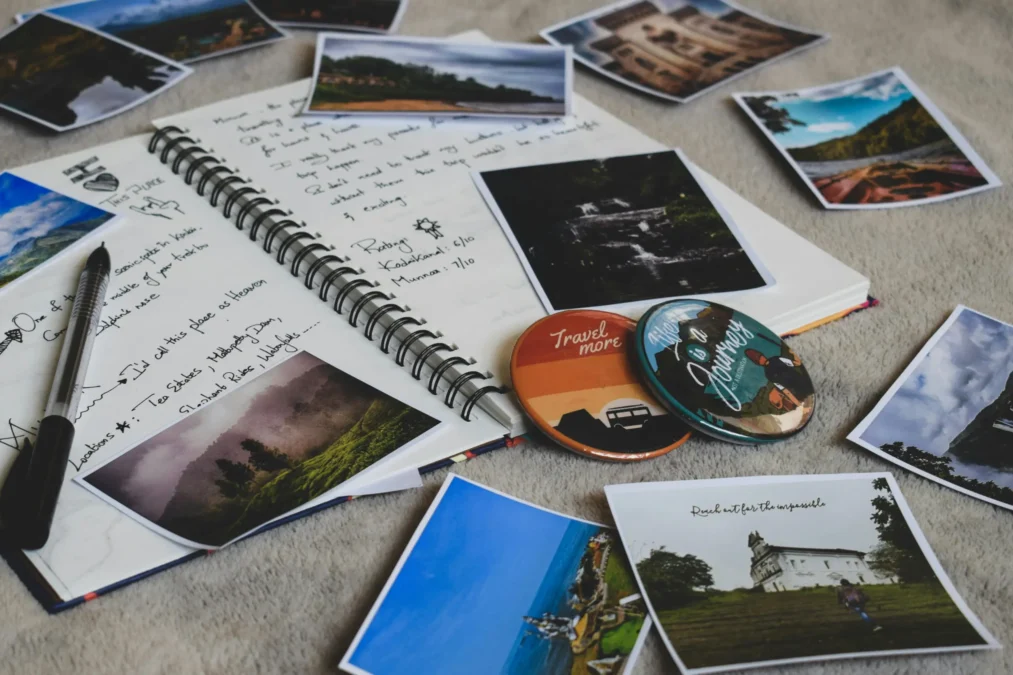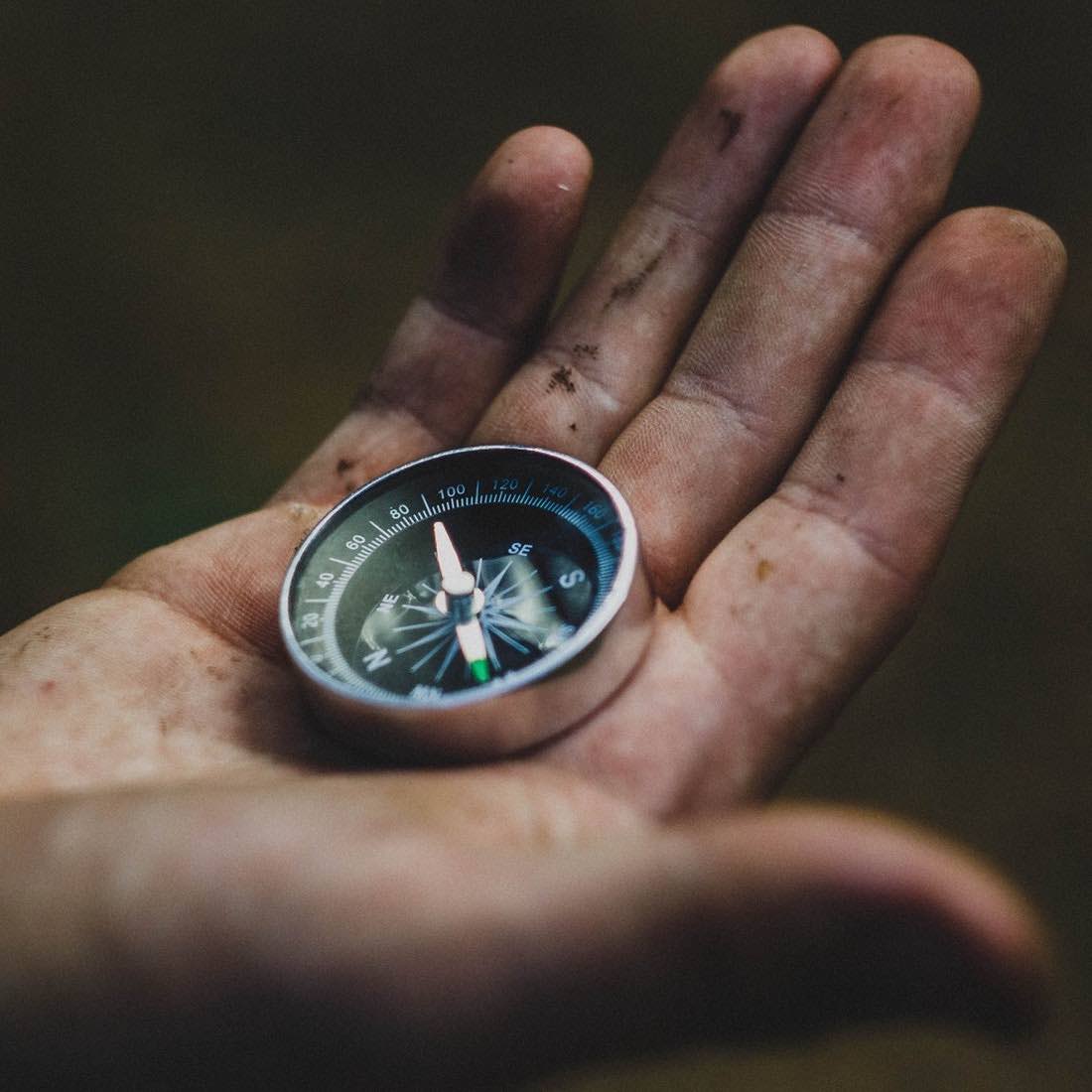Where have you come from? How would you explain the story of your journey up until now? What are the key milestones of personal history thus far?
The ‘where’ question is an important one. It helps us think about:
- Where have we come from?
- Where are we now?
- And, where are we going?
We will look at each of these in turn and firstly we will consider the question that relates to our past, as that is the first step in developing a deeper self-awareness, a better understanding of our present situation, and a clearer picture of our future prospects.
“It is important that we know where we come from, because if you do not know where you come from, then you don’t know where you are, and if you don’t know where you are, you don’t know where you’re going. And if you don’t know where you’re going, you’re probably going wrong.”
– Terry Pratchett
Understanding our past without being held back by it
We all have a history, a different personal story of our past. Along that path there will be various milestones; important experiences that have left an indelible mark on the way, shaping our character and direction.
Some of these milestones mark positive achievements, whilst others are more like tombstones of darker remembrances. All these experiences, good and bad, shape us. For example, consider the story of Victor.
Victor Emil Frankl was born in Austria and his fascination with psychology led him to become a successful psychiatrist. But, as a Jew, he was deported to a concentration camp in the 1940s and ended up in Auschwitz. He suffered incredible hardship and loss. His father, mother, brother, and wife were all killed or died in the years before the end of the war and his release.
Knowing his personal history, it would be perfectly understandable if Frankl had been consumed by loss, hatred, or desire for revenge, but that was not his response.
Free Personal Leadership Action Plan
Just sign up here to receive your free copy
Man’s search for meaning
Victor Frankl went back to practising psychology after the war and he also wrote about his experiences in the bestselling book, Man’s Search For Meaning. The book is full of inspirational wisdom (and I highly recommend reading it). Here is a section where Frankl talks about how we consider our life and past:
“The pessimist resembles a man who observes with fear and sadness that his wall calendar, from which he daily tears a sheet, grows thinner with each passing day. On the other hand, the person who attacks the problems of life actively is like a man who removes each successive leaf from his calendar and files it neatly and carefully away with its predecessors, after first having jotted down a few diary notes on the back. He can reflect with pride and joy on all the richness set down in these notes, on all the life he has already lived to the fullest.
What will it matter to him if he notices that he is growing old? Has he any reason to envy the young people whom he sees, or wax nostalgic over his own lost youth? What reasons has he to envy a young person? For the possibilities that a young person has, the future which is in store for him?
No, thank you,’ he will think. ‘Instead of possibilities, I have realities in my past, not only the reality of work done and of love loved, but of sufferings bravely suffered. These sufferings are even the things of which I am most proud, although these are things which cannot inspire envy.”
– Victor E. Frankl
Frankl’s positivity is all the more striking when we know what he went through. As therefore, as the experience of Victor Frankl demonstrates, the challenges in our past, even our pain, do not need to shackle us. We can choose how to react to our circumstances and our past. He found wisdom and meaning through the most horrific of experiences. It is his perspective, understanding and response to his past that makes him so inspirational.
It is an encouragement for us all. What can we learn from our past, no matter how painful? What wisdom can we take from our past and how can our experiences be used to make the world a better place?
Leadership Development: Master the Top Leadership and Life Skills
Better lead in life and work to maximise your success. Sign up and access materials for free!
The ‘Where From’ Tool: The Logbook (your personal history)
My personal history is nowhere near as dramatic as Victor Frankl’s, but I do make a record of what I do and think about past experiences.
For example, as a Mountain Leader, it is important to keep a logbook. Logbooks demonstrate eligibility for qualifications and currency of experience. I have logs that cover mountaineering, rock climbing, mountain biking and ski touring. It can be a chore to maintain them (and it is often the requirement of a course or qualification that gives me the motivation to update them) but it is always satisfying to see what has been accomplished over the years.
Sometimes, in the struggle of the now, or in our focus on the future, we can forget how far we have come. Taking time to consider the journey to date can give you feelings of progress, satisfaction, and thankfulness. Reflecting on our past also increases our understanding of self.
“To know thyself is the beginning of wisdom” – Socrates
So that is why we consider the question, “Where have we come from?” And, as we can think of a logbook that records our milestones, in The Right Questions Toolkit, the ‘where from’ question is related to the Logbook Tool.
Logbook Tool Exercise: Updating your CV, résumé or LinkedIn profile
We don’t tend to keep a logbook of life, but we do have other records. These can help build a personal history. One classic one is the CV (curriculum vitae) or résumé. If you have ever applied for a job, then it is likely that you have created a résumé. Equally, if you are on LinkedIn, or a similar form of social media, then the details you put on your profile are effectively an online CV.
We can fill out our conceptual logbook by updating our CV, resume or LinkedIn profile and using the process as a reflective exercise. Just follow these steps:
1. Update your curriculum vitae.
You can choose whether to create a CV from a plain document, use a resume template or fill in a LinkedIn profile online. The process is the same.
If you are preparing a CV for a specific position, it is worth tailoring the content accordingly. But in this exercise the aim is to capture as much as possible and, unlike with a work-focused resume, remember to include other important experiences beyond just job roles and qualifications.
For example, moving location, getting married or starting a family are not usually on a CV but are worth noting in this exercise (although you may not want to add these to an online profile).
When filling in my logbook, if I need help remembering what I have done, then my journal, photos and calendar usually give me the prompts I need. Similarly, when you are thinking back on past experiences, you can use your diary, schedule, and pictures as ways to jog your memory.
If you would like further advice on writing your résumé, then check out my article on How to Write a CV.
2. Identify your personal history milestones.
If you were to draw a map of your journey thus far, what would you say were the key milestones? What were the most important achievements, decision points, or changes? Make sure to identify and list these milestones.
3. Reflect on your key milestones.
Now take some time to reflect on your milestones, noting down the answers. Ask yourself:
- If you had to pick the five to ten most important milestones, which would they be and why?
- Are the milestones connected in any way? Which ones led naturally on to another?
- How did these milestones shape you? What difference do they make to the person you are today?
- What would be the logical progression from these milestones? How do you feel about that?
Well done! Thinking about our past can be tricky, even painful at times, but it is useful. It improves our perspective, understanding and self-awareness. Armed with this knowledge, we are better placed to think about where we are now and where we are going, the subject of the next two sections.
“You can’t really know where you’re going until you know where you have been.” – Maya Angelou




